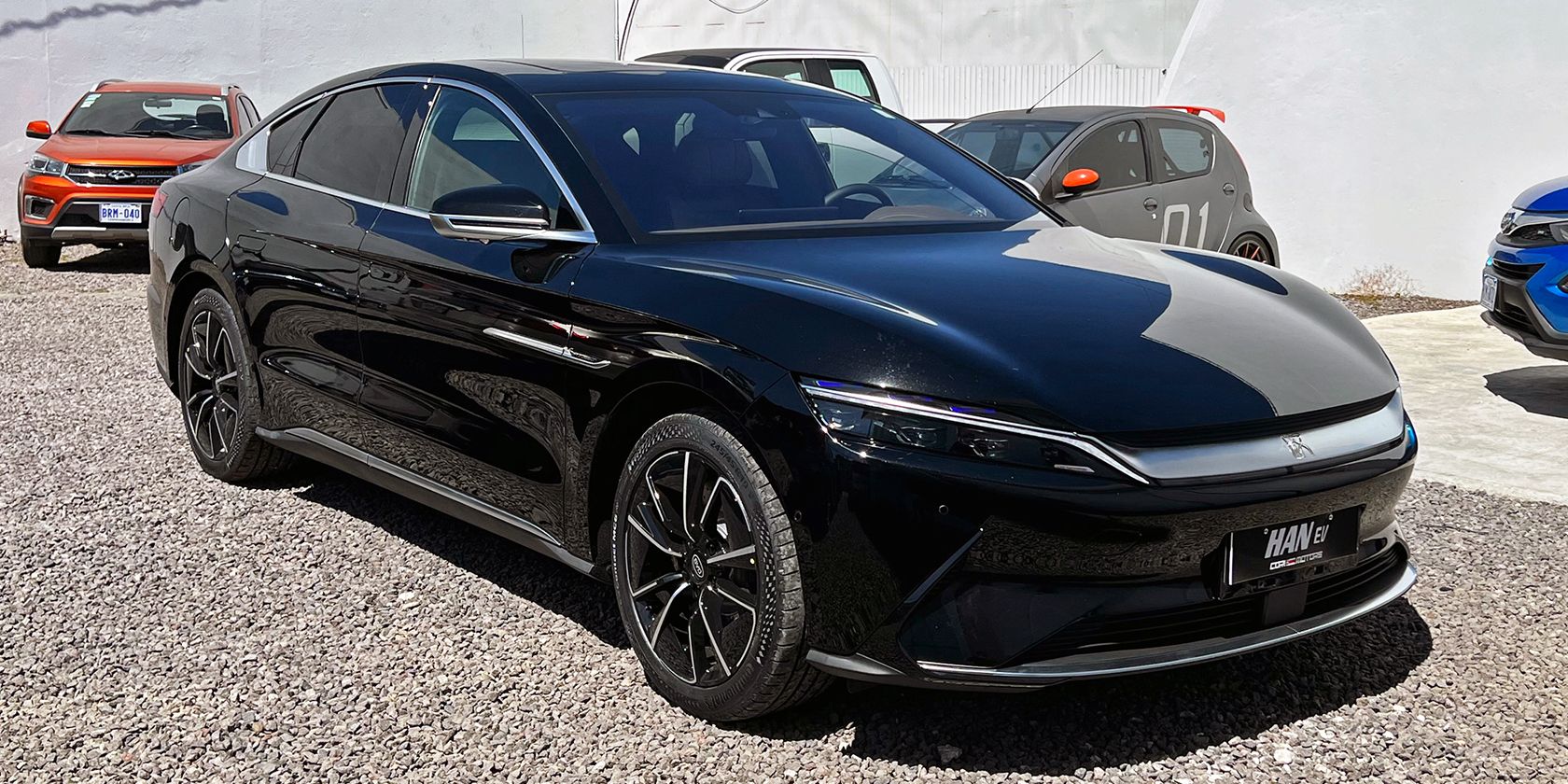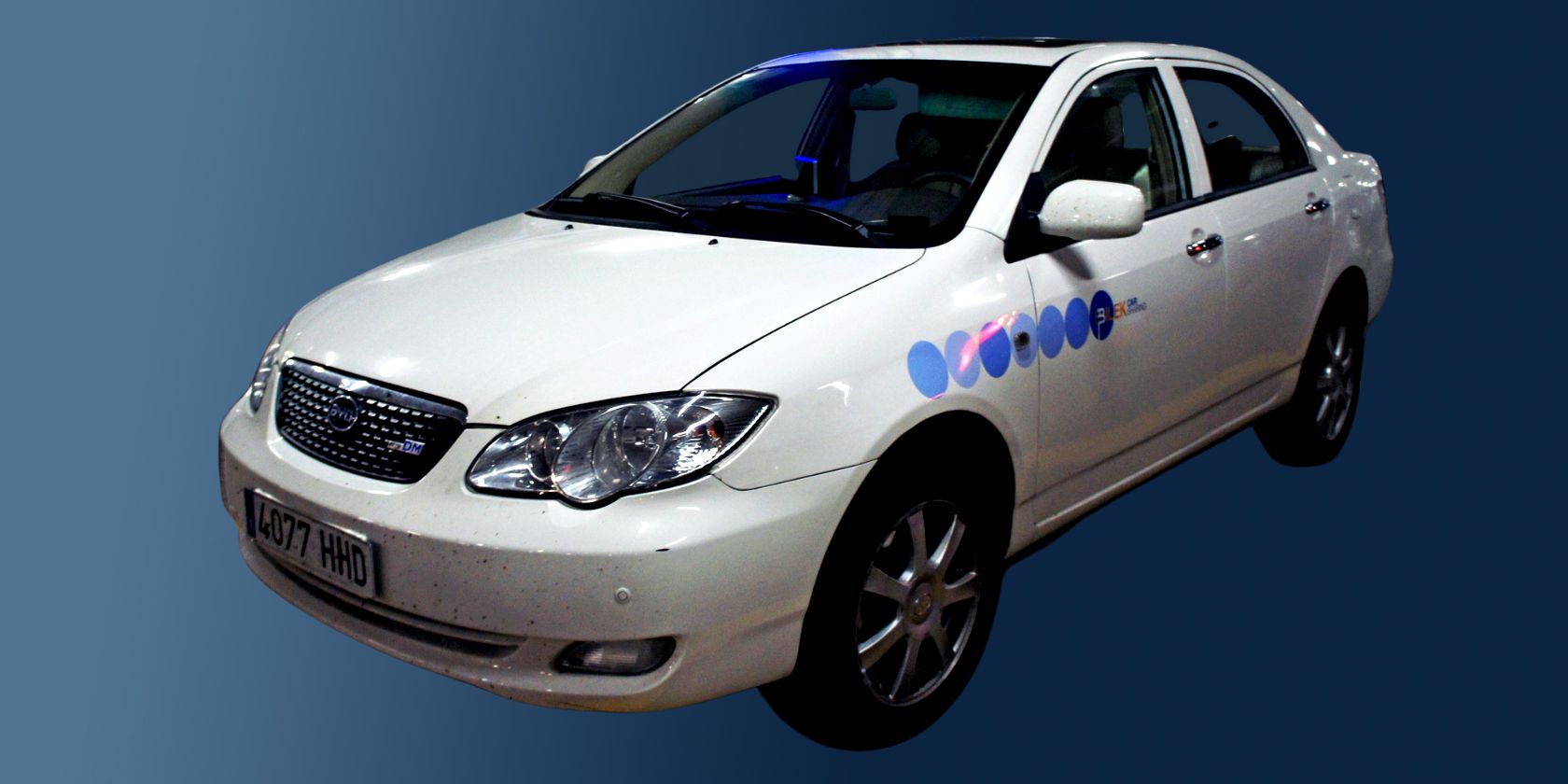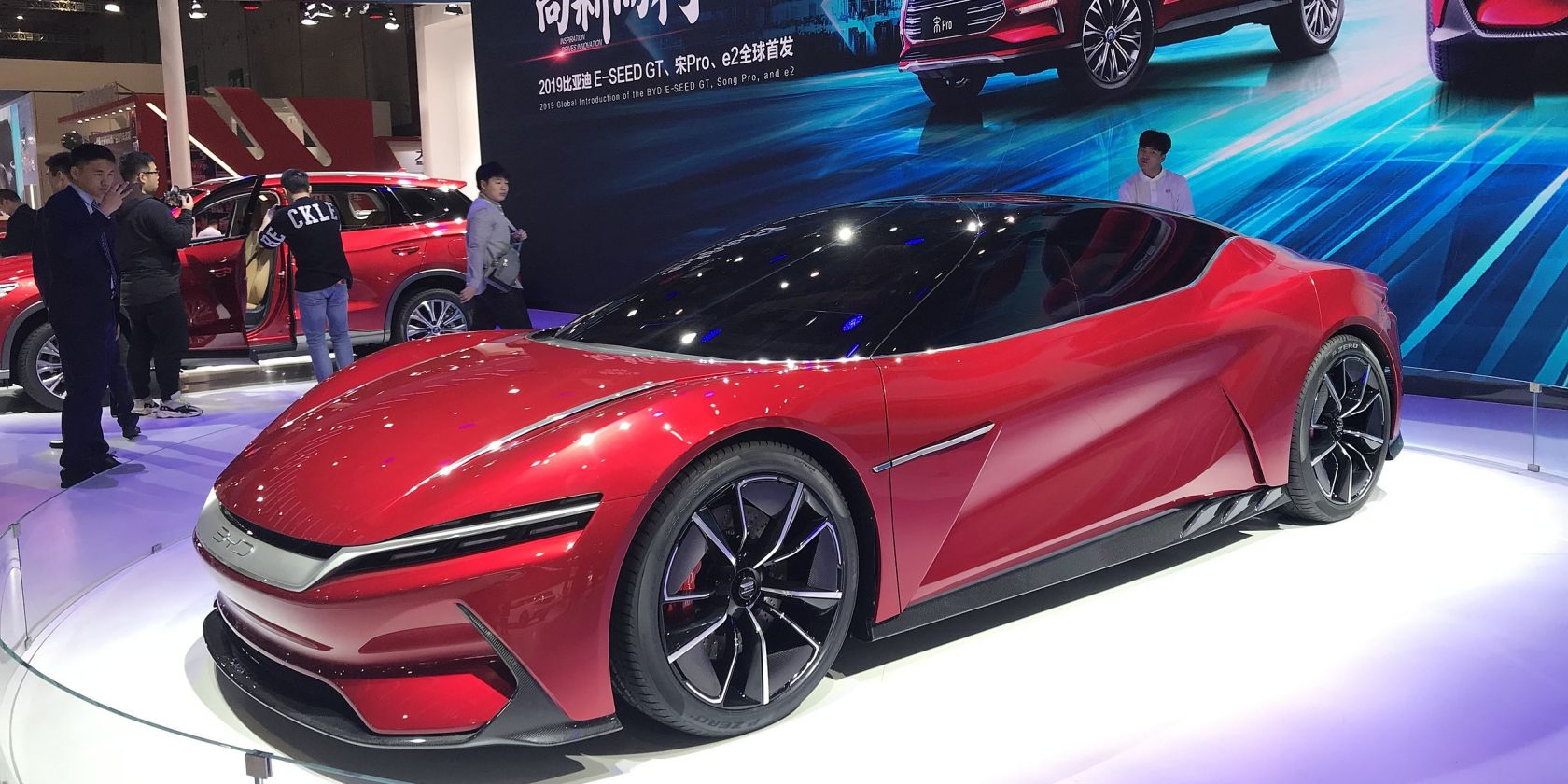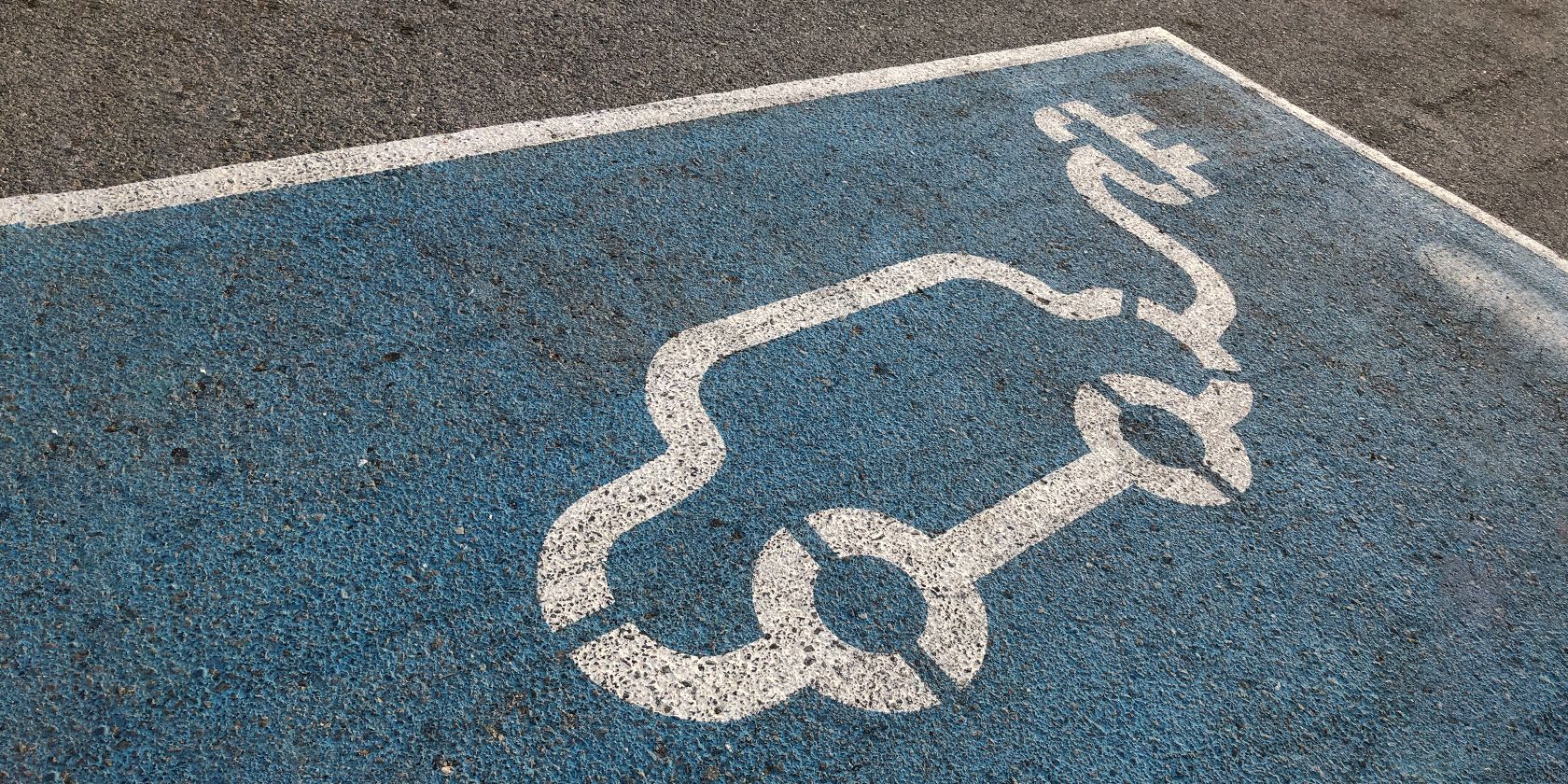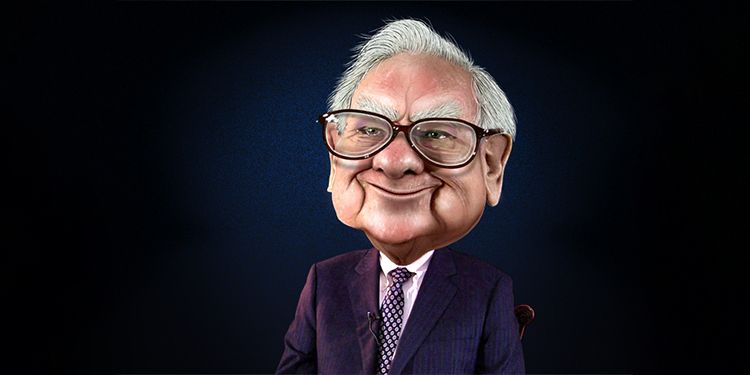When people talk about electric cars, most think of Tesla, Ford, or Rimac. But there's a car company that many haven't heard of—BYD. Despite being relatively unknown in the western hemisphere, this Chinese company is the world's fourth largest plug-in electric vehicle manufacturer.
With almost 600,000 cars sold in 2021, BYD owns 9.1% of the global electric car market, behind Tesla (14.4%), Volkswagen (11.7%), and SAIC (10.5%). So, what exactly is BYD, and will we find its cars on our roads soon?
1. BYD Made the First Production Plug-in Hybrid Car
Many people know that the first hybrid car was the Toyota Prius, and the first mass-produced electric car was GM's EV1. However, BYD is the first car company to create a plug-in hybrid.
It launched the F3DM (Dual-Mode) in December 2008, based on the compact BYD F3 sedan. Although its front fascia closely resembles a 2002 Toyota Corolla, and its rear looks similar to the Asia-only Honda City, it has a unique heart (or three).
The F3DM has two electric motors—one primary electric motor that drives the wheels and another secondary motor that can either send power to the wheels or capture it via regenerative braking. And once the battery hits 20% or lower, its one-liter three-cylinder engine takes over to recharge it.
The car has a theoretical 100-kilometer all-electric range and a maximum of 480 kilometers in hybrid mode. Depending on their preference, drivers can switch between all-electric and plug-in hybrid modes.
Another surprising fact about the F3DM is that the City of Los Angeles leased ten of these vehicles from 2010 to 2011.
2. BYD Sold More EVs Than Tesla in the First Half of 2022
One of the metrics of success in the car industry is sales figures. The greater the number of cars sold, the more successful a company is seen. And speaking of sales, you'll be surprised to know that BYD sold more cars than Tesla from January to June 2022.
According to Statista, Tesla sold 564,750 vehicles in the first and second quarters of 2022. But in the same period, BYD sold about 641,000, as reported by SCMP. That means it sold 13% more vehicles than Tesla in just the first half of 2022.
And while some might be surprised by this number, we shouldn't forget that BYD's primary market, China, is the biggest car market in the world.
3. BYD Sells Electric Buses and Trucks in the US
Although BYD isn't a well-known sedan and SUV maker in the US, they're more prevalent in commercial vehicles and buses. In fact, several elementary school districts in California are acquiring fully-electric school buses to serve their students.
According to BYD's website, it's deploying over 1,000 electric BYD buses in the United States—and its customers have already driven over 18.2 million miles. The company is also offering electric trucks to its American customers, with its "Hard at Work" models eligible for California incentives.
4. BYD Has Factories in North America
All the buses that BYD sells in the US are made in its Lancaster, California, factory. The company boasts a 550,000-square-foot facility operated by its 750 unionized workers. This manufacturing center opened in 2013 and has since expanded to increase its production capacity.
The company also opened another bus plant in Newmarket, Ontario, in 2019 to accommodate bus orders for the Toronto Transit Commission (TTC). According to electrive.com, the TTC ordered 20 electric buses from BYD for evaluation. After comparing it with other competitors, it plans to order another 300 electric buses for its fleet.
And although both of these factories are currently just manufacturing buses, they can quickly expand to accommodate other models, like electric trucks, which BYD is ramping up its sales in California.
5. BYD No Longer Sells Conventional Powered Cars
Many manufacturers plan to eliminate their all-internal-combustion models by some future date. For Jaguar, it's 2025; for Cadillac, Lexus, Mercedes-Benz, and Volvo, it's 2030; and for Chevrolet, it's by 2035.
However, BYD beat them all to the punch. That's because BYD ended production of its purely internal-combustion-engine powered cars in 2022, with the last gasoline-powered car rolling off the line in March 2022.
This means that BYD has enough confidence in its ability to sell hybrid and all-electric vehicles. It sees no more need to sell internal-combustion models for its survival, even though it doesn't sell light passenger vehicles in North America. This tells a lot about its primary market, which, according to Business Insider, is the largest EV market in the world in terms of passenger car sales.
6. Warren Buffett Invested in BYD, not Tesla
Warren Buffett, one of the wealthiest persons in the world, chose to invest in BYD, a Chinese firm, over Elon Musk's Tesla. In 2008, Buffet, through his investment firm Berkshire Hathaway, bought 225 million BYD shares at HK$8 per share—costing HK$1.8 billion or approximately US$230 million.
During this time, Musk was building the first Tesla Roadster and running into trouble. When the 2008 financial crisis hit the US, the Tesla CEO had to sell his McLaren and other assets to help keep his company afloat.
Although Tesla eventually climbed out of that hole, produced innovative products like the Tesla Model S Plaid, and became one of the world's most loved companies, it wasn't a given during those days. That's why Buffett and his partner, Charlie Munger, chose to invest in BYD.
According to a CnTechPost article, Munger saw an opportunity in BYD because he understood how it worked (unlike Tesla, which relied on Musk, who often puts public spectacles on Twitter) and knew about China's desire to go big in the EV industry.
Will BYD Offer Serious Competition to Tesla?
Given the geopolitical tensions between the US and China in the early 2020s, it's unlikely that BYD will get a foothold in the US anytime soon. However, it's making waves in its home market of China.
Although it just garnered 3.5% of China's total car market share, it cornered 20% of the plug-in hybrid and EV market. And with registrations growing at breakneck speed (up by 176% year-on-year in 2022), you can expect BYD to grow proportionately.
And unless Tesla gains a foothold in the massive Chinese market, there's a good chance the BYD will defeat it at its own game in just a matter of years.

